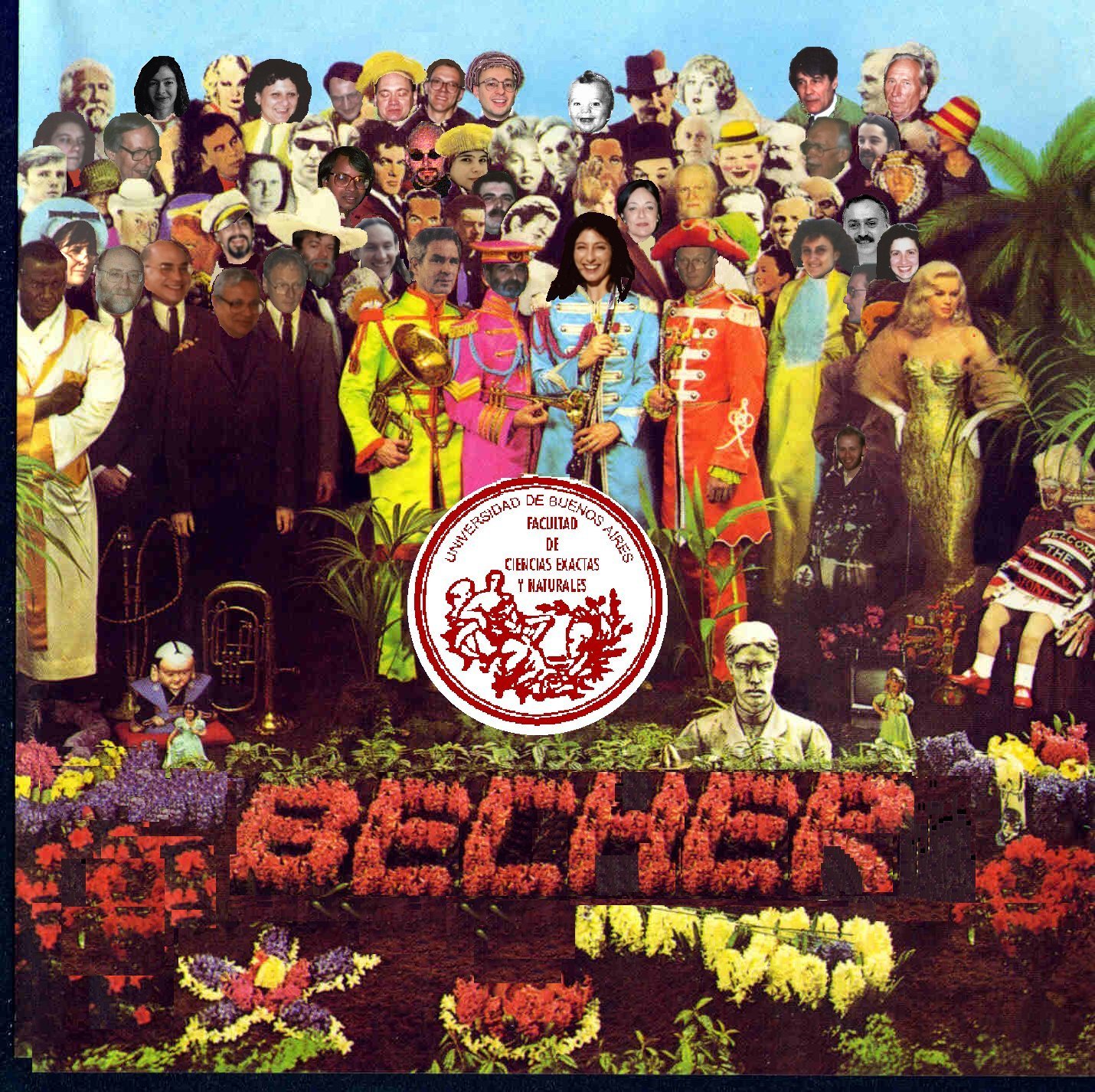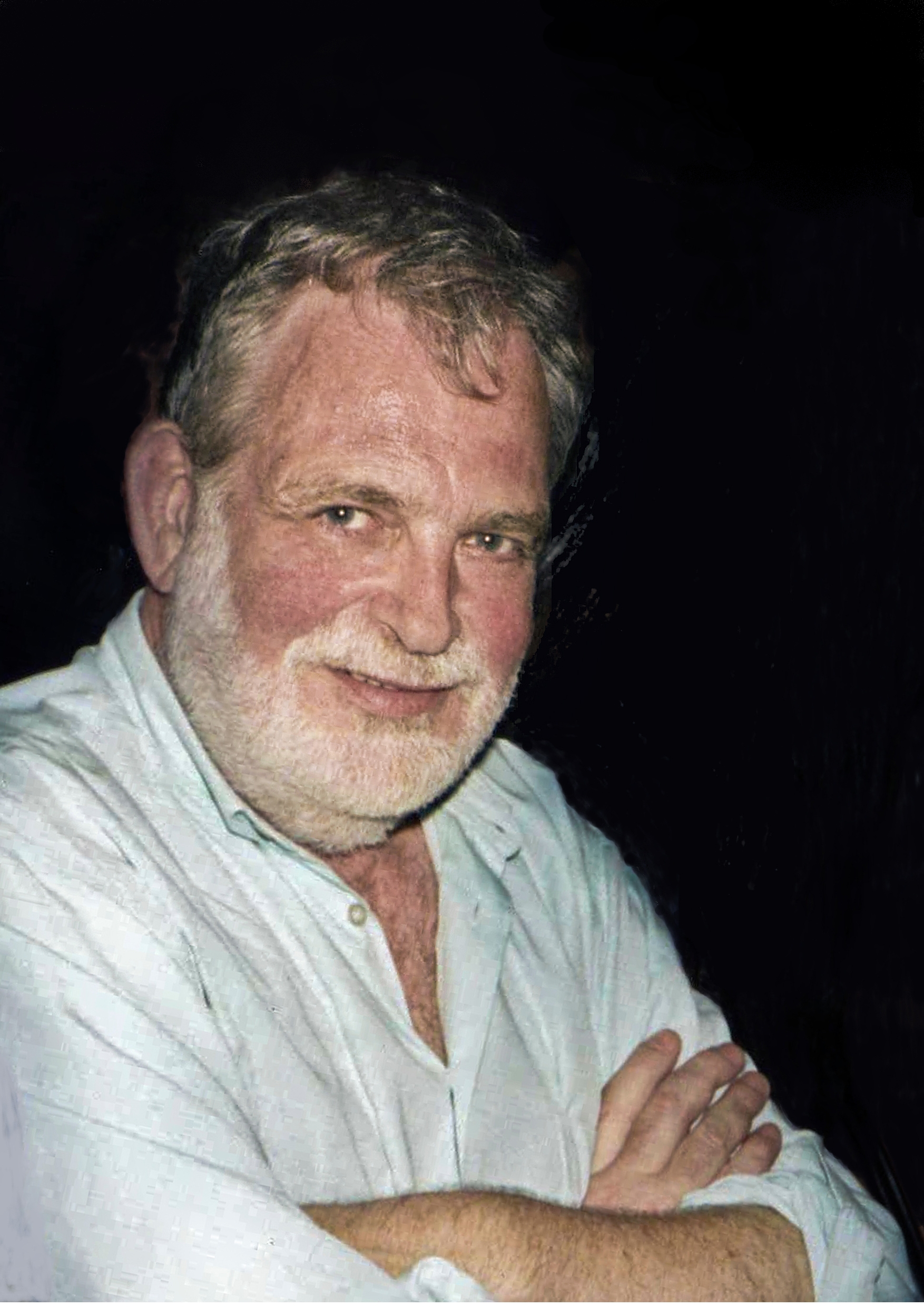Biographical Note
In 1990 I graduated in Computer Science at Facultad de Ciencias Exactas y Naturales, Universidad de Buenos Aires. I was lucky to participate, before graduating, in Carlos Alchourrón's seminar, where we studied his formalization of the problems of expansion, derogation and amendment in law; this is known today as the AGM model, for their authors Alchourrón, Gärdenfors and Makinson.
From 1991 to 1993 I did a Master in Science in Computer Science at The University of British Columbia, Vancouver, Canada, directed by Craig Boutilier. My MSc. thesis gives a model of preferred explanations based on the AGM model.
 Back in Buenos Aires, I did my doctoral studies directed by
Carlos Alchourrón
and graduated in 1999 (Universidad de Buenos Aires).
Informally,
David Makinson
acted as my supervisor after Alchourrón passed away.
My thesis extends the AGM model to solve two problems: iterated changes, and the changes in unions and intersections of sets (closed under a logical consequence relation).
What looks as The Beatles' Sgt. Pepper album is the graduation present I received from my friends, done by Eduardo Fermé.
Back in Buenos Aires, I did my doctoral studies directed by
Carlos Alchourrón
and graduated in 1999 (Universidad de Buenos Aires).
Informally,
David Makinson
acted as my supervisor after Alchourrón passed away.
My thesis extends the AGM model to solve two problems: iterated changes, and the changes in unions and intersections of sets (closed under a logical consequence relation).
What looks as The Beatles' Sgt. Pepper album is the graduation present I received from my friends, done by Eduardo Fermé.
 In my postdoctoral research I entered into algorithmic randomness under the supervision of
Gregory Chaitin. I worked on the problem of finding new examples of random real numbers,
and defined some Omega numbers that are random in higher levels of the Arithmetical Hierarchy.
These Omega numbers are meaningful in terms of probabilities of computer input/output behaviour.
Serge Grigorieff (Université Paris Diderot)
conjectured that the probability that a universal machine yields an output in any given set should be random.
Moreover, he conjectured, the harder to describe the set in the Arithmetical Hierarchy, the more random its associated probability.
The conjecture turned out to be true in many cases. Together with Serge Grigorieff we have worked on these Omega numbers,
and generalized the phenomena in various ways.
In my postdoctoral research I entered into algorithmic randomness under the supervision of
Gregory Chaitin. I worked on the problem of finding new examples of random real numbers,
and defined some Omega numbers that are random in higher levels of the Arithmetical Hierarchy.
These Omega numbers are meaningful in terms of probabilities of computer input/output behaviour.
Serge Grigorieff (Université Paris Diderot)
conjectured that the probability that a universal machine yields an output in any given set should be random.
Moreover, he conjectured, the harder to describe the set in the Arithmetical Hierarchy, the more random its associated probability.
The conjecture turned out to be true in many cases. Together with Serge Grigorieff we have worked on these Omega numbers,
and generalized the phenomena in various ways.

 Since 2009 I lead the research group KAPOW where we work on problems on finite and infinite sequences,
and we try to solve them by using arithmetic, combinatorics and algorithmics.
My research is influenced by
Max
Dickmann's way of thinking
and by
Joos Heintz's ideas.
I am interested in the most basic form of randomness, defined by Émile Borel in 1909: the property of normality.
A real number is normal to a given base if all blocks of digits of the same length occur with same asymptotic frequency
in the expansion of the number expressed in that base. In other words,
all blocks of the same length have the same chances to occur in the expansion of the number.
A real number is absolutely normal if it is normal to every base. One of the main open problems,
since the time of Borel, is the construction of absolutely normal numbers with desirable mathematical
and computational properties.
Since 2009 I lead the research group KAPOW where we work on problems on finite and infinite sequences,
and we try to solve them by using arithmetic, combinatorics and algorithmics.
My research is influenced by
Max
Dickmann's way of thinking
and by
Joos Heintz's ideas.
I am interested in the most basic form of randomness, defined by Émile Borel in 1909: the property of normality.
A real number is normal to a given base if all blocks of digits of the same length occur with same asymptotic frequency
in the expansion of the number expressed in that base. In other words,
all blocks of the same length have the same chances to occur in the expansion of the number.
A real number is absolutely normal if it is normal to every base. One of the main open problems,
since the time of Borel, is the construction of absolutely normal numbers with desirable mathematical
and computational properties.

Notes Related to my Research
The Omega Man, New Scientist, March 10, 2001.
Omega, entrevista con Gregory Chaitin, por Nora Bär, diario La Nación, Buenos Aires, 29 Abril, 2001. .pdf
Perfume de Azar, por Martín De Ambrosio, diario Página 12, Buenos Aires, 13 Julio, 2002.
Números casuales, por Verónica Engler, Exactamente, Facultad de Ciencias Exactas y Naturales, 3 Marzo, 2004.
De puzzles, soluciones y cuelgues de computadoras, por Cecilia Draghi, Cable Número 593, año 16, 24, Oficina de Prensa SEGBE, Octubre 2005.
Reconstruyen un manuscrito histórico. Es un problema matemático planteado por Alan Turing, considerado el padre de la computación, por Nora Bär, diario La Nación, 10 Julio, 2007. Versión impresa .pdf
Turing puso en juego su homosexualidad en el trabajo científico por Leandro Lacoa, Agencia CTyS, 26 de Diciembre 2012.
Être normal? Pas si facile ! Jean-Paul Delahaye, Pour la Science 422, p. 126- 131. .pdf Décembre 2012.
Sobre lo azaroso que es el azar, diálogo con Verónica Becher y Theodore Slaman, por Leonardo Moledo, Página 12, 10 de Abril 2013.
Reunidos por el azar, Noticias Facultad de Ciencias Exactas, UBA 12 Abril 2013.
Entrevista de Adriaán Paenza con Theodore Slaman y Verónica Becher en Científicos Industria Argentina. Bloque 1, Bloque 2 TV Canal 7, 18 Mayo, 2013.
Alan Turing. El hombre que sabía demasiado, por Nora Bär, diario La Nación, 10 Enero 2014.
Kapow!, por Patricia Olivella, El Cable 926, Subsecretaría de Comunicaci&ocaute;n, Facultad de Ciencias Exactas y Naturales, Universidad de Buenos Aires 23 mayo 2018. Versión impresa .pdf
Cuando la ciencia tiene cara de mujer, diario La Nación, 2 de noviembre 2019.
Rebelión en el laboratorio . Historias de vida de diez científicas argentinas, Capítulo 6. Nora Bär, Editorial Planeta, 2019.

